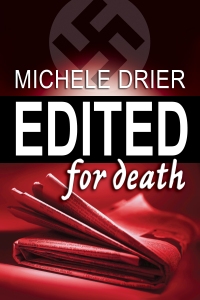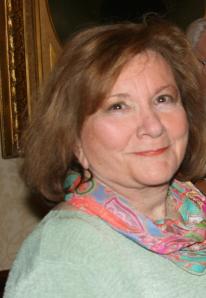
 The New? Maybe not. by Michele Drier
The New? Maybe not. by Michele Drier
Long ago, as the earth was cooling, people used odd machines called “typewriters” to compose notes to one another.
These machines were developed after the discovery of electricity, but they were powered by a different source, human fingers. And they were called “manual” because of this.
They were difficult to use, these first “manual” typewriters. They consisted of a series of letters at the end of long rods, attached to a board, also with letters. When a finger hit a letter on the “keyboard”, the rod that held that letter would move and imprint the letter on a piece of paper, using an inked ribbon.
This was a huge step up from clay tablets, stone carving or foul fowl feathers, and the new technology was embraced by most people.
Not by the folks who wrote the stories you found in your daily newspaper, though.
These guys were lazy, or just conserving energy, so when they typed something other than their story, they used shortcuts.
“Manual” typewriters took a lot of pressure to pound the “keys” on the “keyboard” for that the impression to show up on the paper, so the first thing those guys eliminated was capital letters. To print a capital took an extra “keystroke”. The next thing those guys eliminated was a lot of punctuation. Again, an extra stroke.
Instead, they’d sling the carriage return and just start another paragraph.
So for a time everybody wrote like e.e.cummings.
But that wasn’t enough. It still took extra time to write notes or instructions to the men who actually set the type, using a machine adapted from a typewriter called a “linotype.” This machine produced a line of type (letters) molded from the pot of hot, liquid lead at the side of the machine.
Not incidentally, the molten lead floated around in the air and coated everything, including the coffee we drank.
The number of keystrokes was getting trimmed, but it still took more time than was warranted on composing messages to friends or other useless drivel, like notes from your interview, so abbreviations evolved.
thnx
c u
u r a pal
luv
And it wasn’t enough to use abbrv., you could also cut whole words out. For instance, if you wanted to say, “I’d appreciate it if you would respond to my question,” you could say “gimme yes or no.”
Invariably, the pronouns were dropped also. “hope all is well,” “coming over?”
As things go, this technology went the way of swan feathers, until today lots of people correspond using only their thumbs and a string of seemingly miscellaneous letters. OMG, BFF, ROTHWL, LOL, IMHO.
Gibberish? I think not. Just the evolving result of those memos and notes we typed to each other. I seldom use caps even today when I correspond, now by email, with friends still in the business.
When you write email, do you write in complete sentences and use capitals?
I’m tickled to think that the texters believe they’ve discovered something new.
We got there first.
~ ~ ~ ~ ~
When the earth was cooling, Michele Drier was a staff writer at the San Jose Mercury-News and caught the tail end of manual typewriters and hot lead. The lead is gone but the caps never came back.
Her first Amy Hobbes Newspaper Mystery, Edited for Death, set at a daily newspaper, was well-reviewed including the Midwest Book Review which called it “Riveting and much recommended.” The second mystery, Labeled for Death, due out in summer 2013, looks at the California wine industry. Michele is also the author of the five-volume Kandesky Vampire Chronicles, paranormal romances set in the field of international celebrity gossip journalism.
Contact Michelle via her website: http://www.micheledrier.com or facebook page, http://www.facebook.com/AuthorMicheleDrier or her Amazon author page, http://www.amazon.com/Michele-Drier/e/B005D2YC8G/
What a cute essay! I enjoyed this immensely–thx!
Shades of Archy & Mehitabel! My hands remember pounding those keys.
Ah, the good old days of Smith Coronas, Royals, and Olympias
lol very funny.
I actually learned to type on my dad’s old Royal and his aunt was a typesetter for the Sacramento Bee for about 30 years so I am familiar with what you’re describing…
I actually miss my dad’s typewriter.
Q
Love it, Michele. From someone who remembers carbon paper. Thx bunches!
Thanks for having me as a guest, Debra. It looks as though I hit a well of remembrance…archy…and carbon paper. Not sure those were the days, tho!
My pleasure to have you today — You definitely brought back memories (I hated carbon paper).
Entertaining essay! I remember learning to type on those old clunkers and my first Smith Corona typewriter. Thanks for resurrecting those memories 🙂
Thanks, Joanne! They were nail-breakers.
I still have my Smith Corona. Amazing how many computers I have gone through but that typewriter still is in one piece. Thanks for stopping by today.
I just finished my Spanish class and as a final project we had to make a short film. In our film I played Ernest Hemingway reporting on the bombing of Madrid during the Sapnish Civil War. I borrowed a manual typewriter from the 1930s and typed my report, but the keys kept sticking! I wonder how I managed college on a manual Olivetti? Had to crumple the page every time I made a mistake! This was a fun article.
Great story, Ana! And constantly black fingers from unsticking the keys!
I feel your pain at the stuck keys…..though they still could be unstuck easier than dealing with a computer virus 🙂